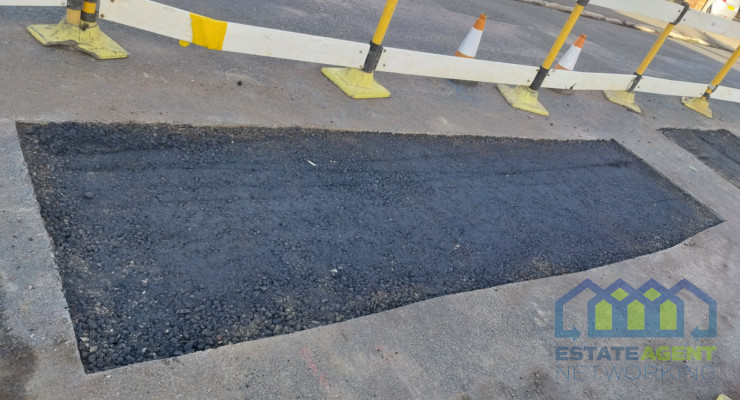Party Walls: The 7 Questions You Really Want to Ask, Answered
The sheer volume of high-density housing across the UK means that almost every homeowner can expect to experience a party wall issue at some point. Fortunately, the Party Wall etc. Act was introduced in 1996 to protect the rights of building owners and their adjoining neighbours, so that shared boundaries can be modified and built-on in a way that is fair and responsible to those on either side of it.
Whether you’ve been served Notice about planned works on a shared wall or are preparing to carry out some alterations yourself, here are seven answers to the questions you’ve been burning to ask.
Adjoining Owners
It sounds like my neighbour is building but I haven’t been Notified of any work – is there anything I can do?
Absolutely. Before any major works can be carried on a party wall, written consent must be obtained from adjoining neighbours. This includes making alterations to a party wall (e.g. cutting into it), constructing a new wall or fence close to the boundary line, or excavating below the foundations of a neighbouring property within 3m of your walls.
If your neighbour is carrying out any of these works illegally (i.e. without informing you) then you have the right to apply to the County Court for an injunction to stop them. Be warned that you will be liable for any associated costs if the injunction is filed mistakenly or falsely, so you should seek professional advice before proceeding.
Do I have to provide my neighbour access via my property? I don’t like them.
Yes, but only if it is the only reasonable way for the work to be carried out. If it is, then you are legally obliged to give your neighbour, their contractors and/or surveyor access to the site via your property. However, unless the work is urgent (such as a burst pipe), you must be given “adequate notice” that access is needed. This is normally considered to be 14 days – see Section 8 of the Act.
Can I complain about the construction noise that’s coming from next door?
Ongoing disruption is often the most frustrating part of dealing with party wall matters. Unfortunately, adjoining owners are expected to accept “reasonable disturbance” but the building owner carrying out the work does have an obligation to do so without causing unnecessary inconvenience.
In negotiating your Party Wall Award, you surveyor should have outlined the acceptable working hours for the work to be carried out. If you neighbour has agreed to these terms but is not adhering to them then you may be owed compensation.
Building Owners
I’m modifying a party wall but didn’t know about serving Notice, what do I do?
Stop work immediately and serve Notice to cover the remaining work. Seek professional advice from a Party Wall Surveyor and continue to follow the formal procedure laid out by the Party Wall Act. If your neighbour does not provide written consent then you will have to appoint surveyors (either jointly or separately) according to the formal dispute resolution procedure.
I served Notice but my neighbour has ignored it. Now what? Can I just start work?
Sometimes a disgruntled neighbour will ignore Notice, thinking that your work will be stalled. While this isn’t the case, you won’t be able to immediately start building, either.
Formal process dictates that if the adjoining owner does not provide written consent within 14 days, they must appoint a surveyor to represent them in the dispute. Should they fail to do so, your surveyor is permitted to appoint one on their behalf and proceed as normal.
Can I start work while the Party Wall Award is still being finalised?
Only if it is a minor job that is in no way covered by the act. Carrying out works on the party wall without an Award in place can result in legal repercussions.
I’m only building next to the boundary line, not on it – so I don’t need to worry about the Party Wall Act, right?
If your structure requires foundations that go beneath those of the neighbouring property and you’re digging within 3 meters of it, then Section 6 of the Party Wall Act will apply. This is because your excavations pose a potential subsidence risk to your neighbour’s property. If your digging is particularly deep – piled foundations, for example – then this is extended to 6 metres.
The processes associated with works on a party wall might seem excessive and frustrating at times, but remember that they’re in place to protect the interests of both parties. Without the legislation, building owners could be prevented from making any modifications to or near a boundary structure, and neighbours would have little legal protection to ensure that damages are made good. Ultimately, the system is there to keep everyone happy, even when it doesn’t seem that way!









